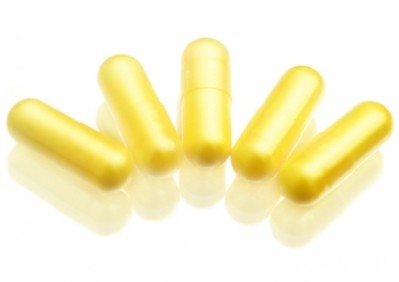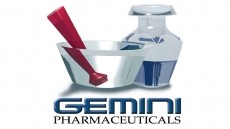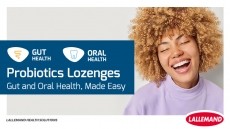Nanoparticles may allow controlled release of vitamin D3
Writing in the Journal of Agricultural and Food Chemistry, scientists from Ocean University of China report that when the vitamin D3 nanoparticles were exposed to a simulated intestinal fluid the vitamin was released “slightly and steadily with increasing time”.
The researchers noted that the technology could be extended to other “liposoluble nutraceuticals” to achieve “controlled release in gastrointestinal fluid”.
Shining light on the sunshine vitamin
Vitamin D refers to two biologically inactive precursors - D3, also known as cholecalciferol, and D2, also known as ergocalciferol. Both D3 and D2 precursors are transformed in the liver and kidneys into 25- hydroxyvitamin D (25(OH)D), the non-active 'storage' form, and 1,25-dihydroxyvitamin D (1,25(OH)2D), the biologically active form that is tightly controlled by the body.
“Vitamin D insufficiency is a widespread public health problem, for it is a fat-soluble vitamin,” explained the researchers. “It is minimally found in fat-free and low-fat dairy products, which are in growing demand. Because the lining of the digestive tract is aqueous in nature, to be assimilated, vitamin D is absorbed in a bile-fat complex, which is a water-soluble globule with a fatty core.”
In an attempt to develop a novel carrier for oral administration of the sunshine vitamin, the researchers prepared a hydrophobic alginate derivative. By reacting oleoyl chloride with alginate the researchers produced an oleoyl alginate ester (OAE). The synthesis was solvent-free.
Self-assembly
When dissolved in water, the oleoyl alginate ester was found to self-assemble into nanoparticles, where the hydrophobic vitamin D3 could be encapsulated within the particle.
These nanoparticles containing vitamin D3 were then exposed to simulated gastric and intestinal fluids. Data showed that the “nanoparticles retained their structural integrity” in both fluids. Despite such structural integrity, however, the researchers noted that the “nanoparticles could release vitamin D3 at a sustained rate in gastrointestinal fluid”.
Specifically, 40 percent of the vitamin D3 was released in the first 30 minutes of exposure to the gastrointestinal fluid, and release continued for several hours. Indeed, after 7 hours of exposure to the fluid, the researchers report that 57 percent had been release.
“The nanoparticles can be used as carriers for liposoluble nutraceuticals such as vitamin D3 with controlled release in gastrointestinal fluid,” concluded the researchers.
Bioavailability debate
The relative bioavailability of the two forms of vitamin D is an area of intense interest and debate. Several studies have reported that vitamin D2 is between 30 and 50 per cent less effective as the D3 form in maintaining blood levels in humans. In addition, a recent study from scientists led by Robert Heaney, MD, from Creighton University in Nebraska found that D3 may be 87 percent more potent at raising blood levels of the vitamin than vitamin D2.
Source: Journal of Agricultural and Food Chemistry
Published online ahead of print, doi: 10.1021/jf1020347
“Preparation and Characterization of Nanoparticles Based on Hydrophobic Alginate Derivative as Carriers for Sustained Release of Vitamin D3”
Authors: Q. Li, C-G. Liu, Z-H. Huang, F-F. Xue













